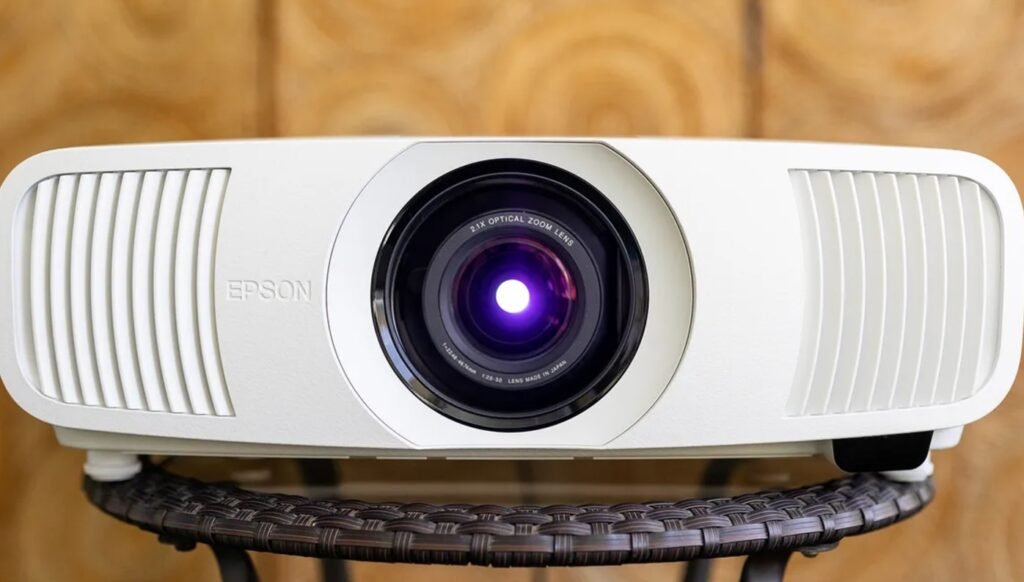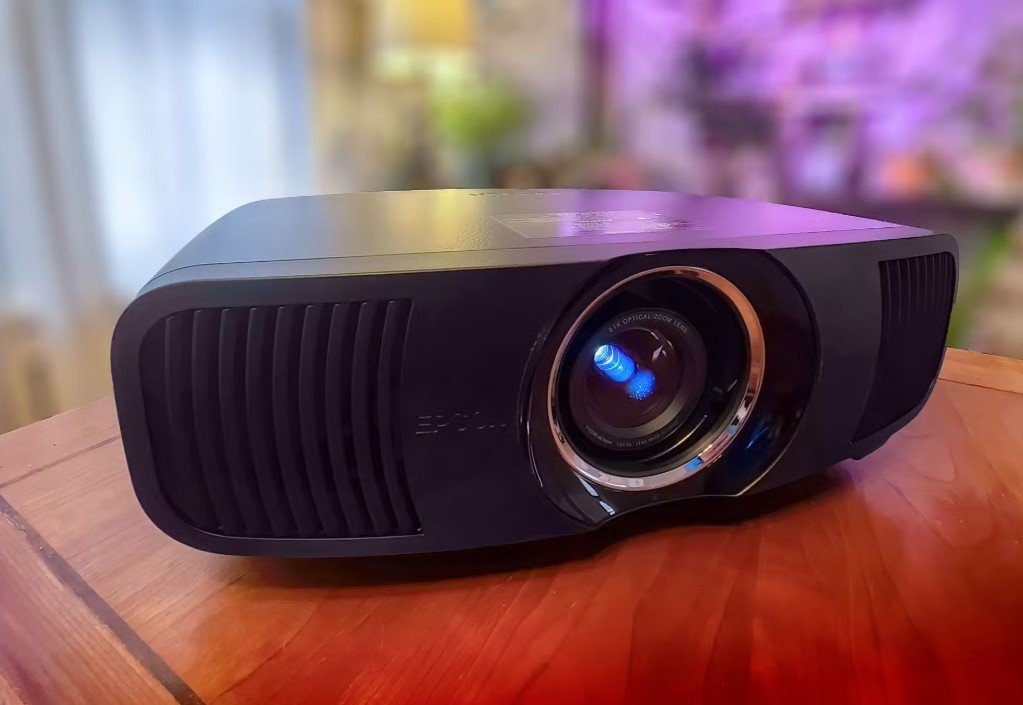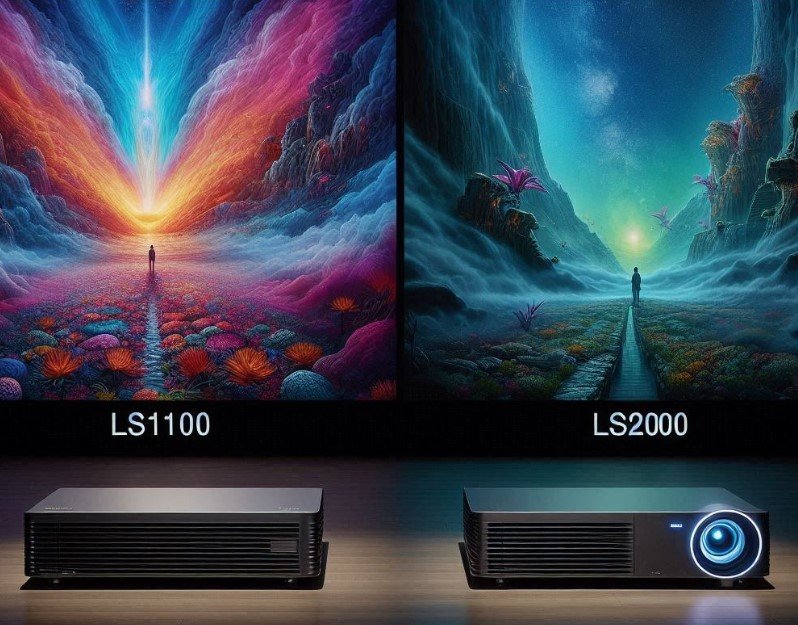LS11000 Vs LS12000 [Comparison & Which One Is Better?]
In this article, we aim to provide complete information about LS11000 Vs LS12000. They are two premium 4K laser projectors designed for home theaters. They offer stunning image quality and advanced features.
Both models are equipped with Epson’s patented 3LCD technology to produce beautiful colors, a high level of detail, and a high brightness. Although they have much in common, they differ significantly in terms of functionality and performance. Understanding their distinctions is crucial if you’re deciding which projector suits your needs.
LS11000 Vs LS12000 [Comparison & Which One Is Better?]
Regarding choosing between the LS11000 and the LS12000, the Epson LS12000 is a strong choice since it is more powerful and with more functionalities. Meanwhile, the LS12000 can also produce a higher brightness of 2,700 lumens instead of the LS11000’s 2,500-lumen capability so it is better used in the situation of the bright environment.

The LS12000 has also a better contrast ratio meaning it can reproduce darker images and detail in those images Much Better. Further to that, it can accommodate more HDR formats which elevates the picture quality even further.
Nevertheless, the LS11000 comes at a lower price and still offers great picture quality which is perfect for someone seeking high performance but on a budget. In the end, the final verdict will hang on to the financial capability and the details of the viewing conditions required.
Epson Home Cinema LS11000 4K PRO-UHD Laser Projector Review
The Epson Home Cinema LS11000 4K PRO-UHD Laser Projector is one premium option for the home-theater gamer who is not willing to sacrifice picture quality when the cost is right.

- With Epson’s latest 4K PRO-UHD and 3LCD projection technology, the system delivers superb, accurate, highly sharp rich, and faithful color.
- Featuring a brightness of 2,500 LM and HDR10/HLG compatibility, the LS11000 brings a cinematic feel even in rooms with medium ambient light.
- Having a laser light source it has a maximum operational hour (with no maintenance) of 20,000 hours, so it is a stable and long-lasting solution.
- The projector further has motorized lens shift, zoom, and focus which as a feature can be used for installation flexibility.
- Although it is missing some of the high-end features of the more expensive models including a little higher contrast and broader HDR, the LS11000 still represents unmatched value for what it is doing with its performance and price point. It is a great option for anyone who wants to make a high-fidelity home theater without spending a lot of money.
Epson Pro Cinema LS12000 4K-PRO-UHD Laser Projector Review
The Epson Pro Cinema LS12000 4K PRO-UHD Laser Projector is a very good clear winner in the high-end home theater projector market.

- It offers excellent 4K resolution with the latest 3LCD technology, providing clear and vivid colors without the rainbow effect appearing in some DLP projectors.
- Offering up to 2,700 lumens of light output, the LS12000 provides excellent performance both in deep and medium light conditions where it generates crisp, detailed imagery.
- With its impressive contrast ratio, it improves the depth of blacks and consequently image quality, and this type of display is therefore very suitable for deep movie viewing and gaming.
- The projector is equipped with HDR10, HDR10+, and HLG which makes it possible to have high dynamic range and a richer picture.
- It also includes motorized zoom, lens shift, and focus control changes, which can help to facilitate installation.
- The laser light source is capable of a maximum lifespan of 20,000 hours. Although at the high end of price, the Epson Pro Cinema LS12000 merits its cost with unmatched performance, ensuring it is one of the premium choices for serious home viewers desiring peak image quality and stability.
Epson LS11000 Vs LS12000 Comparison
Based on the Epson LS11000 Vs LS12000 Projector Comparison, the Epson LS12000 has better features in terms of brighter, better contrast, and a wider range of HDR. LS12000 gives 2,700 LM as compared with the 2,500 LM of LS11000, which is preferred for rooms with an illuminated background.
Due to its enhanced contrast ratio, it is capable of bringing forth a stronger black, a sharper detail, and consequently delivers to the viewer a more enjoyable general experience.
Also, the LS12000 is capable of supporting a larger range of HDR representations, including deeper colors and more dynamic displays. Even though the LS11000 delivers incredible value for the cost, the enhanced features and performances of the LS12000 result in the best solution for anyone looking for the best home theater.
Difference Between Epson LS11000 Vs LS12000 Projector
The main distinctions between the Epson LS11000 and LS12000 projectors are brightness, contrast, and HDR.
The LS12000 has a larger luminaire (2700 LM), than the LS11000 (2500 LM), allowing sufficiently luminous lighting so as also a room with an ambient light may receive sufficiently luminous illumination. Further higher contrast ratio is also achievable, resulting in deeper black and richer detail in very dark regions, which in turn improves image quality.

In addition, the LS12000 can handle a wider variety of HDR formats including HDR10+, and deliver more dynamic content than the LS11000.
While both models are composed of Epson’s 4K PRO-UHD, 3LCD, technology, to obtain the maximum quality and accurateness in the display, the LS12000’s superior functionality deserves its higher cost and therefore makes it an excellent option for people who want the best quality at home theater.
Epson LS12000 Vs LS11000: Is The Price Difference Worth It?
The price gap of the Epson LS12000 and LS11000 models is warranted for viewers who want better performance and more capability. The LS12000 is brighter at 2,700lm than the LS11000’s 2,500 lumens and is thus more suitable to be used in rooms with ambient light.
Its high contrast ratio delivers deeper blacks, more blacks, and better detail in dark scenes, leading to a highly immersive viewing experience. Also under this aspect, the LS12000 supports a more expanded gamut of HDR formats, such as HDR10, to provide more colorful and dynamic graphics.
Although the LS11000 provides an astounding value for such good quality performances at a lesser cost, the LS12000’s superior brightness, contrast, and HDR performances justify it for serious enthusiasts, looking for the best home theater experience.
Conclusion
To conclude, both LS11000 Vs LS12000 are superb projectors in their own way, with different targets to provide a quality home theatre environment, but in different manners. Its high brightness, improved contrast, and wider HDR are what set the LS12000 apart, and are more than adequate for the demands as well as the most demanding user who wants the optimum performance and perhaps the most immersive experience even in direct sunlight.
However, the LS11000 provides a good price when compared to the high image quality and rich features, suited for budget buyers. If you seek the best performance and versatility, the LS12000 is the clear winner.
Top FAQ’s
What is the life of the laser in the Epson LS12000?
The laser in the Epson LS12000 operates for up to 20,000 hours, providing years of maintenance-free operation and the same level of performance.
Is the Epson LS12000 native 4K?
No, the Epson LS12000 is not native 4K. And, it incorporates the 4K PRO-UHD technology of Epson, allowing one to access a 4K visual experience through a combination of sophisticated pixel-shifting and high-resolution image acquisition.
When did the Epson LS11000 come out?
The Epson LS11000 launched in March 2022 and with better hardware performance at a lower price point than its flagship luxury equivalent.
How big is the Epson 2200?
The Epson 2200 projector is about 14.8 x 13.4 x 6.4 in W x D x H and is about 8.4 lb, providing a portable and compact option for home viewing.
Does input lag affect FPS?
DD does not have a direct effect on FPS (Frames Per Second), as FPS is the outcome of both system processing power and game processing effects. However, it is input latency that influences the responsiveness of those controls, consequently, this responsiveness can modulate the quality of the gaming experience, especially in fast-paced or competitive gameplay, e.g.






